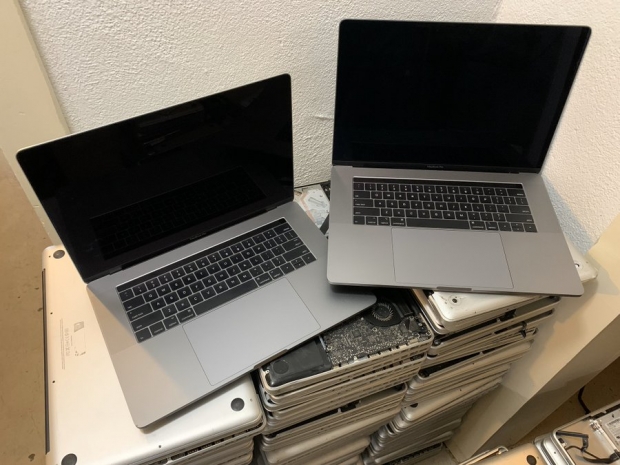Reports are coming in from users who have been trying to get some value for money from their two year old Macbook Pros by refurbishing them. However they are finding that a combo of secure software locks, diagnostic requirements, and Apple's new T2 security chip are making it hard to breathe new life into old MacBook Pros.
These users are rather miffed that their MacBook Pros could have been recycled or easily repaired and used for years were it not for these locks. After all you expect after paying an arm and a leg for a PC you would get the same length of life from it as a you would a budget PC.
However, Apple has a real issue with people not upgrading every year or to and has a combative attitude towards the secondhand market and the need for national right to repair legislation.
MacBook refurbisher and owner of the RDKL INC repair store John Bumstead, tweeted a picture of two bricked Macbook Pros which he said that he would like to do the responsible thing and wipe user data from these machines, but Apple won't let him.
"Literally the only option is to destroy these beautiful $3,000 MacBooks and recover the $12/ea they are worth as scrap."
Motherboard has reported previously that without official Apple diagnostic software, newer MacBooks cannot be repaired or reset. Bumstead told Motherboard in an email that by default you can't get to recovery mode and wipe the machine without a user password, and you can't boot to an external drive and wipe that way because it's prohibited.
"T2 machines have no removable hard drive, and the drive is simply chips on the board, this default setting means that a recycler (or anyone) can't wipe or reinstall a T2 machine that has default settings unless they have the user password."




